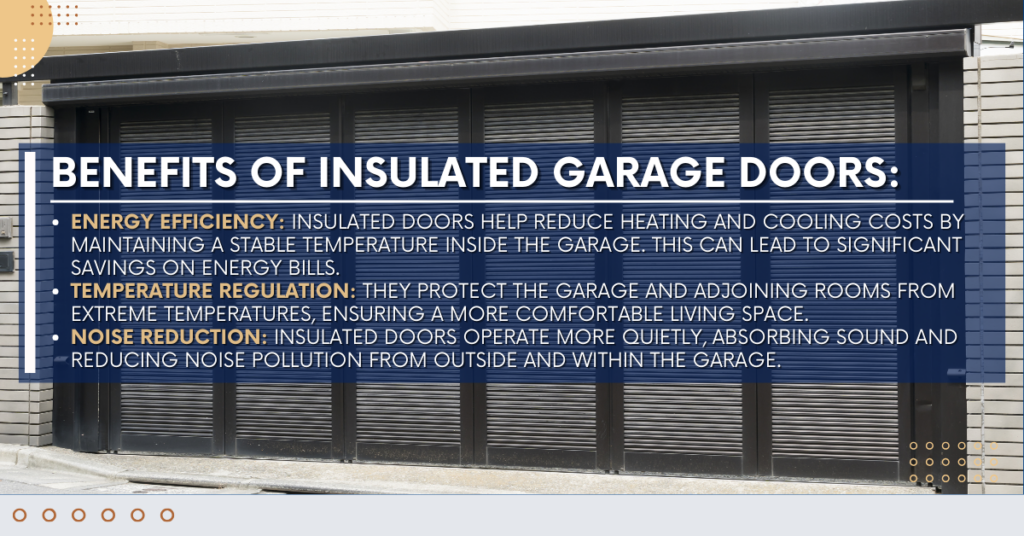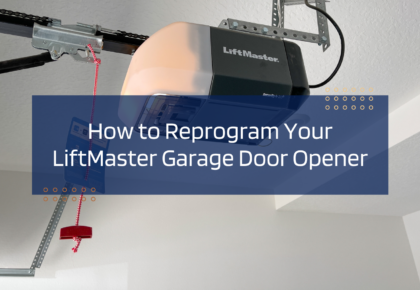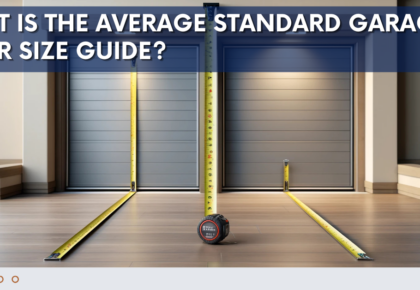When it comes to choosing a new garage door, homeowners are often faced with the decision between insulated and uninsulated options. This choice can significantly impact energy efficiency, comfort, and overall functionality. At MN Garage Squad, we aim to help you make an informed decision that best suits your needs. In this guide, we’ll explore the differences, benefits, and considerations of insulated and uninsulated garage doors.
Understanding Insulated Garage Doors
What is an Insulated Garage Door? Insulated garage doors are designed to create a more comfortable indoor environment by minimizing heat transfer between your garage and the outdoors. These doors typically feature layers of insulating materials such as polystyrene or polyurethane, which offer superior thermal resistance.
Benefits of Insulated Garage Doors:

- Energy Efficiency: Insulated doors help reduce heating and cooling costs by maintaining a stable temperature inside the garage. This can lead to significant savings on energy bills.
- Temperature Regulation: They protect the garage and adjoining rooms from extreme temperatures, ensuring a more comfortable living space.
- Noise Reduction: Insulated doors operate more quietly, absorbing sound and reducing noise pollution from outside and within the garage.
Advanced Insulation Technologies Many modern insulated garage doors use advanced technologies like Intellicore insulation, which involves injecting polyurethane foam into the door’s core. This not only provides excellent thermal resistance but also enhances the door’s strength and durability.
Understanding Uninsulated Garage Doors
What is an Uninsulated Garage Door? Uninsulated garage doors are generally made from single-layer materials such as steel or wood. They serve as a basic barrier, providing minimal protection against temperature fluctuations and noise.
When Uninsulated Doors Might Be Sufficient:
- Mild Climates: In regions with stable, mild temperatures, the need for insulation is less critical. Uninsulated doors can perform adequately without significantly impacting indoor comfort.
- Detached Garages: If the garage is separate from the main house, insulation may not significantly affect indoor temperatures, making uninsulated doors a practical choice.
- Budget Constraints: Uninsulated doors are usually more affordable and might be a cost-effective solution for homeowners with tight budgets.
Key Differences and Considerations
Thermal Efficiency (R-value and U-value):
- R-value: Measures the door’s resistance to heat flow. Higher R-values indicate better insulation.
- U-value: Measures overall heat transfer. Lower U-values signify better insulation efficiency. Understanding these values is crucial when comparing garage doors, as they directly impact energy efficiency and comfort.
Cost Implications:
- Initial Costs: Insulated doors generally have a higher upfront cost due to the additional materials and manufacturing processes involved.
- Long-term Savings: Despite the higher initial investment, insulated doors can lead to substantial savings on energy bills over time, making them a cost-effective choice in the long run.
Durability and Maintenance:
- Insulated Doors: Often provide better structural integrity and longevity due to their multi-layer construction, making them more resistant to dents and damages.
- Uninsulated Doors: May require more maintenance and can be more prone to damage, especially in harsh weather conditions.
Benefits of Insulated Garage Doors
- Energy Savings: Insulation helps reduce energy consumption by maintaining a stable temperature, leading to lower heating and cooling costs.
- Enhanced Durability: The additional layers and materials used in insulated doors make them more robust and resistant to damage, ensuring a longer lifespan.
- Noise Reduction: Insulated doors dampen sound, providing a quieter operation and reducing noise pollution from both inside and outside the garage.
Improved Protection for Stored Items An insulated garage door can help protect your belongings, such as vehicles, tools, and other temperature-sensitive items, from extreme weather conditions. This can prevent damage and prolong the lifespan of these items.
Scenarios for Choosing Uninsulated Garage Doors
- Mild Climates: Uninsulated doors can be sufficient in areas with stable, mild weather, where temperature regulation is not a significant concern.
- Detached Garages: Insulation is less critical for garages not attached to the main living space, making uninsulated doors a practical option.
- Budget Constraints: For homeowners prioritizing cost over energy efficiency, uninsulated doors offer a more affordable solution without compromising basic functionality.
Frequently Asked Questions
Do insulated garage doors really make a difference? Yes, insulated garage doors significantly impact energy efficiency, comfort, and noise reduction. They help maintain a stable temperature, reducing the need for excessive heating or cooling. Additionally, they provide a quieter operation, which can be beneficial if your garage is attached to living spaces or used as a workspace.
Is it worth the extra money for an insulated garage door? The initial cost of an insulated garage door is higher, but the long-term benefits, such as energy savings, increased home value, and durability, often justify the investment. Over time, the reduction in energy bills and maintenance costs can offset the higher upfront expense.
Does it make sense to insulate an unheated garage? Insulating an unheated garage can still be beneficial, especially for protecting stored items from extreme temperatures and reducing noise. It also improves the overall temperature stability of the home if the garage is attached, providing a buffer against external weather conditions.
Is insulated glass on a garage door worth it? Insulated glass in garage doors can enhance energy efficiency and aesthetics. It helps reduce heat transfer and can add a modern, stylish look to the garage. This is particularly useful if your garage has windows and you want to maintain a consistent temperature inside.
Why We Recommend Insulated Garage Doors Over Insulation Kits
Ease of Installation: Factory-insulated doors are easier to install compared to DIY insulation kits, which can be time-consuming and less effective. Professional installation ensures a perfect fit and optimal performance.
Performance and Durability: Integrated insulation provides better overall performance and longevity than aftermarket solutions. Insulated doors are designed to work as a cohesive unit, maximizing their insulating properties.
Energy Efficiency: Professionally insulated doors offer superior energy savings, contributing to lower heating and cooling costs. They are engineered to minimize heat transfer and drafts, ensuring consistent indoor temperatures.
Regional Considerations for Insulated Garage Doors
In colder regions, investing in a garage door with a higher R-value can lead to significant energy savings and improved comfort. In milder climates, an uninsulated door may suffice, provided the garage does not require strict temperature control.
Making the Right Choice for Your Garage Door
Choosing between insulated and uninsulated garage doors depends on your specific needs, climate, and budget. Insulated doors offer numerous benefits, including energy savings, noise reduction, and enhanced durability, making them a worthwhile investment for many homeowners. However, uninsulated doors can be a cost-effective option for those in milder climates or with detached garages. Consider your unique circumstances and consult with professionals to make the best decision for your home.
At MN Garage Squad, we are dedicated to helping you find the perfect garage door solution. Contact us today for expert advice, professional installation, and top-notch service. Let us help you enhance the comfort, efficiency, and security of your home with the right garage door.








